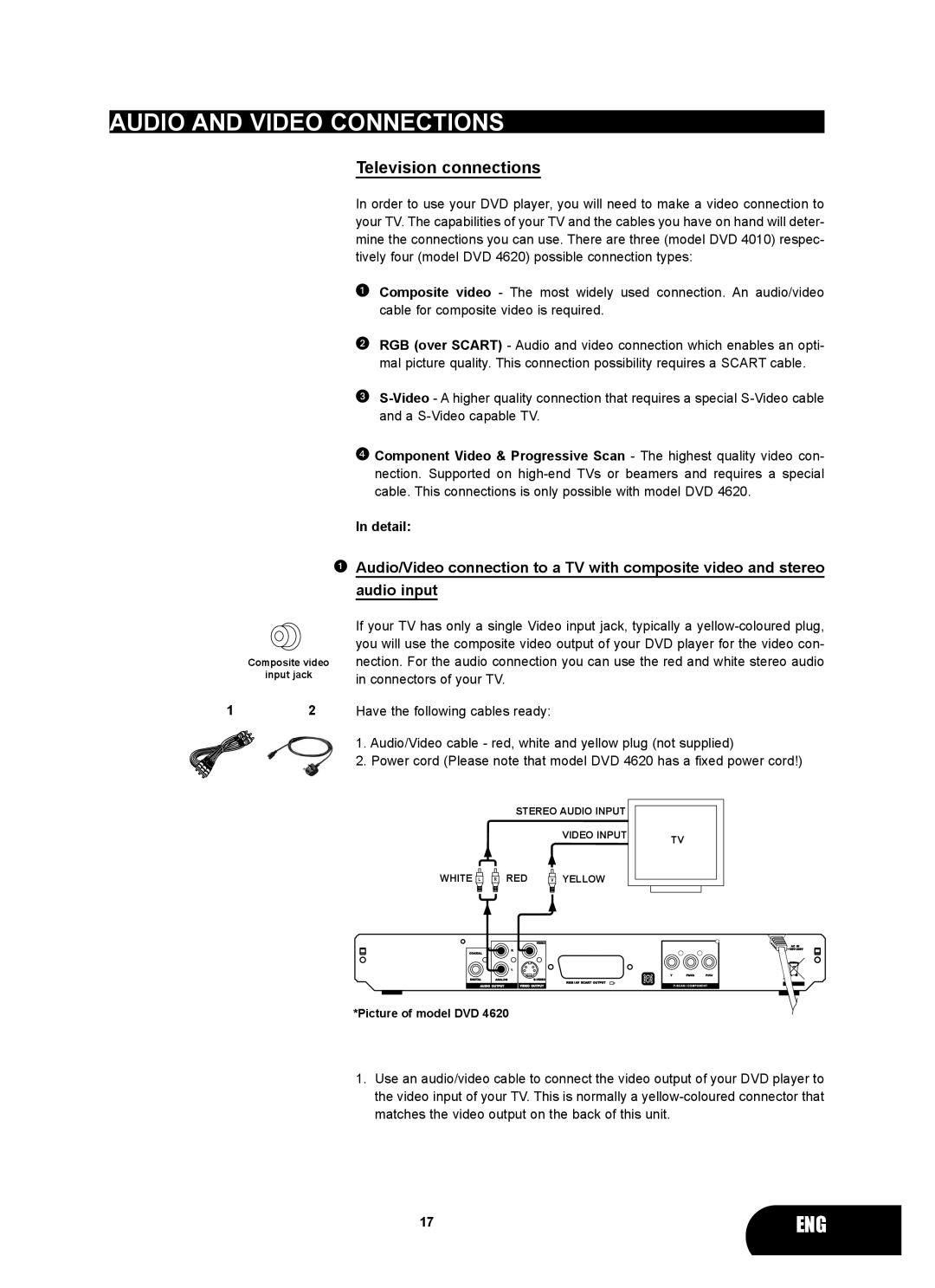
AUDIO AND VIDEO CONNECTIONS
Television connections
In order to use your DVD player, you will need to make a video connection to your TV. The capabilities of your TV and the cables you have on hand will deter- mine the connections you can use. There are three (model DVD 4010) respec- tively four (model DVD 4620) possible connection types:
Composite video - The most widely used connection. An audio/video cable for composite video is required.
RGB (over SCART) - Audio and video connection which enables an opti- mal picture quality. This connection possibility requires a SCART cable.
Component Video & Progressive Scan - The highest quality video con- nection. Supported on
In detail:
1Audio/Video connection to a TV with composite video and stereo audio input
Composite video
input jack
1 2
If your TV has only a single Video input jack, typically a
Have the following cables ready:
1.Audio/Video cable - red, white and yellow plug (not supplied)
2.Power cord (Please note that model DVD 4620 has a fixed power cord!)
STEREO AUDIO INPUT VIDEO INPUT
TV
WHITE L R RED
VYELLOW
*Picture of model DVD 4620
1.Use an audio/video cable to connect the video output of your DVD player to the video input of your TV. This is normally a
17 | ENG |
